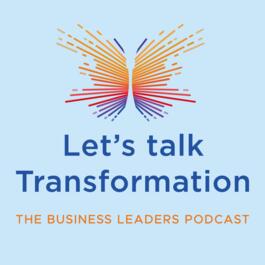
Playing with transformation with Elrika Erasmus
"playfulness and adults is very under researched and under utilised in organisations to help people to thrive..." Elrika and I have a great conversation about the power of play and playfulness in creating workplaces where people and performance can thrive. Light-hearted practices enhance empathy and shared experiences, and despite challenges in remote work, maintaining playfulness is possible in virtual meetings. Playfulness is often undervalued in adult contexts, yet it’s crucial for brain function, creativity, and performance. We explore the cultural sensitivities around play in the workplace as well as the neuroscientific processes as work. Technology and digital can also be used to leverage play in the workplace and leaders who dare to incorporate playfulness can create more collaborative, creative, and resilient workplaces, and enhance human connection. Techniques like Lego Serious Play are more than just child’s play; they are strategic tools for inclusion, creativity and balance, even at the highest levels of management. Elrika shares her research, insights and experience from working with organisations and leaders around the globe on 'how to play' seriously and to enhance the bottom line business results. The main insights you'll get from this episode are : - Playfulness in adults is important for thriving although sadly scarce. Research into playfulness and its effect on the brain shows that play is rooted in our brain chemistry, so it is part of all of us but not nurtured in all of us. - An agile world requires us to consider the whole human and embrace our roots of being playful. One definition of play is the playful onion: play is on the outer layers we can see, playfulness is on the inner layers we can’t see, and the playful centre is where we find compassion, warmth and imagination. - The LEGO Serious Play approach allows us to learn from each other’s models and gives us time to reflect on the results, which enables introverts and extroverts to play along by creating a safe space and catering for all personality types – it is overarchingly collective but facilitates individual input. - It builds skills, increases challenge, enables flow and does not assume that leaders have the answers – rather that everyone has the answers. Neurologically, thinking and talking use only the frontal lobe of the brain. - The hand-brain connection relaxes people enough to listen and be creative and using more of the brain increases divergent thinking. LEGO stimulates multiple processes simultaneously, releasing serotonin (excitement about the process), dopamine (completing the task) and adrenaline (the urgency of the task). - In a safe environment, it is possible to build something and break it again, enabling us to fail together and building team cohesiveness. Playfulness in the workplace can also address stress and burnout challenges, providing a feeling of safety to experience emotions: ‘If I can laugh with you, I can cry with you’. - Playfulness creates safety, but safety is required to play – this reciprocity needs respect, clear boundaries, and space for exploration and engagement; it allows us to bring our personalities to work, and be less afraid of who we are, and of imposter syndrome. - When using play for leaders in organisations with a clear hierarchy, it is important to understand different levels of play and playfulness; sometimes apparently serious people are playful (NOT silly – this is a clear and significant difference). - The Proyer approach of OLIW – other-directed, light-hearted, intellectual, whimsical – is...
From "Let's talk Transformation : The business leaders podcast"


Comments
Add comment Feedback